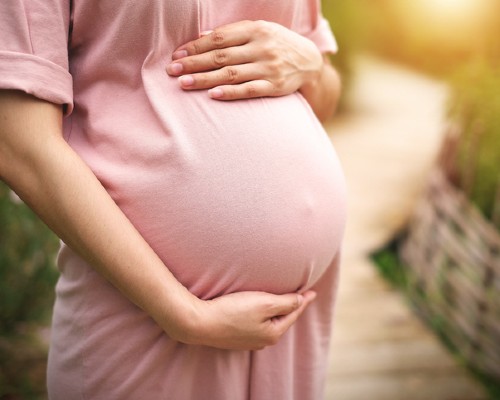University Of Bristol £1.8 Million Funding
The Tommy’s App, which is in development at the Tommy’s National Centre for Maternity Improvement, has been awarded £1.8 million through the National Institute for Health and Care Research (NIHR).
The tool will enable midwives and doctors to more accurately assess each woman’s needs during pregnancy and to personalise their care, using latest evidence and national clinical guidelines. This aims to reduce the variation in care across the NHS and ensure that each woman and pregnant person is offered the right care at the right time, no matter where they live.
It supports healthcare professionals to offer care recommendations in line with national clinical guidelines for best practice maternity care, to help lessen the chance of these complications developing.
The funding award will enable the team behind the tool’s development to trial its implementation at scale, investigating and overcoming any challenges ahead of potential NHS-wide adoption.
Earlier this year, the Centre published evidence demonstrating the algorithms used in the Clinical Decision Support Tool can help reduce health inequality in Black, Asian and other minority ethnic pregnant women. The Centre is developing the tool as part of a broader maternity improvement programme supporting Government targets to reduce the rates of preterm birth and stillbirth across the UK.
Co-designed with women, the tool is accessed using a web application so women and pregnant people can access their own care information with ease, encouraging engagement and supporting them to be heard if they have any questions or concerns. It also offers them access to pregnancy information and guidance from trusted sources, to support informed decision making.
The Tommy’s National Centre for Maternity Improvement is jointly led by the Royal College of Obstetricians and Gynaecologists (RCOG) and the Royal College of Midwives (RCM). The Clinical Decision Support Tool has been co-developed by a team of healthcare professionals from leading UK universities brought together by the Centre, including University of Bristol, King’s College London, University of Sheffield, and St George’s University of London, and charitable partners Mothers for Mothers and the PROMPT Maternity Foundation.
Professor Basky Thilaganathan, Clinical Director to the Tommy’s National Centre for Maternity Improvement, said: “We believe that our Clinical Decision Support Tool can make a significant change in the delivery and experience of maternity care. We are thrilled to be able to expand our work with this funding, and further our learning to support our aim for NHS-wide adoption.”
Andy Judge, Professor of Translational Statistics at the University of Bristol and co-principal investigator of the trial, said: “This trial is an important step forward in exploring safe and effective use of the tool, to inform making it widely available in the NHS.”
Maria Viner, CEO of Mothers for Mothers and Patient and Public Involvement Lead at the Centre, said: “Through the safe implementation of such an easy-to-use tool, we could make a huge impact on the experience and outcomes for many women and pregnant people and their families, across the UK.”
Dr Ranee Thakar, President of the RCOG, said: “Reducing stillbirth and preterm birth rates in the UK remains a priority. This exciting trial is a huge stepping stone towards offering more personalised care that can save babies’ lives.”
Gill Walton, Chief Executive of the RCM, said: “Midwives play a fundamental role in identifying those women at heightened risk during pregnancy, which is why the RCM is a very proud partner in the development of the Clinical Decision Support Tool. This investment will take us a step closer to rolling this out across the country.”
Kath Abrahams, Chief Executive of the charity Tommy’s, added: “Sadly in the past year we have seen the number of stillbirths in parts of the UK rise and inequalities in access to good care widen. By supporting healthcare professionals to offer the right care at the right time during pregnancy, we hope this important new technology will help meet our goal of making the UK the safest place to give birth.”

